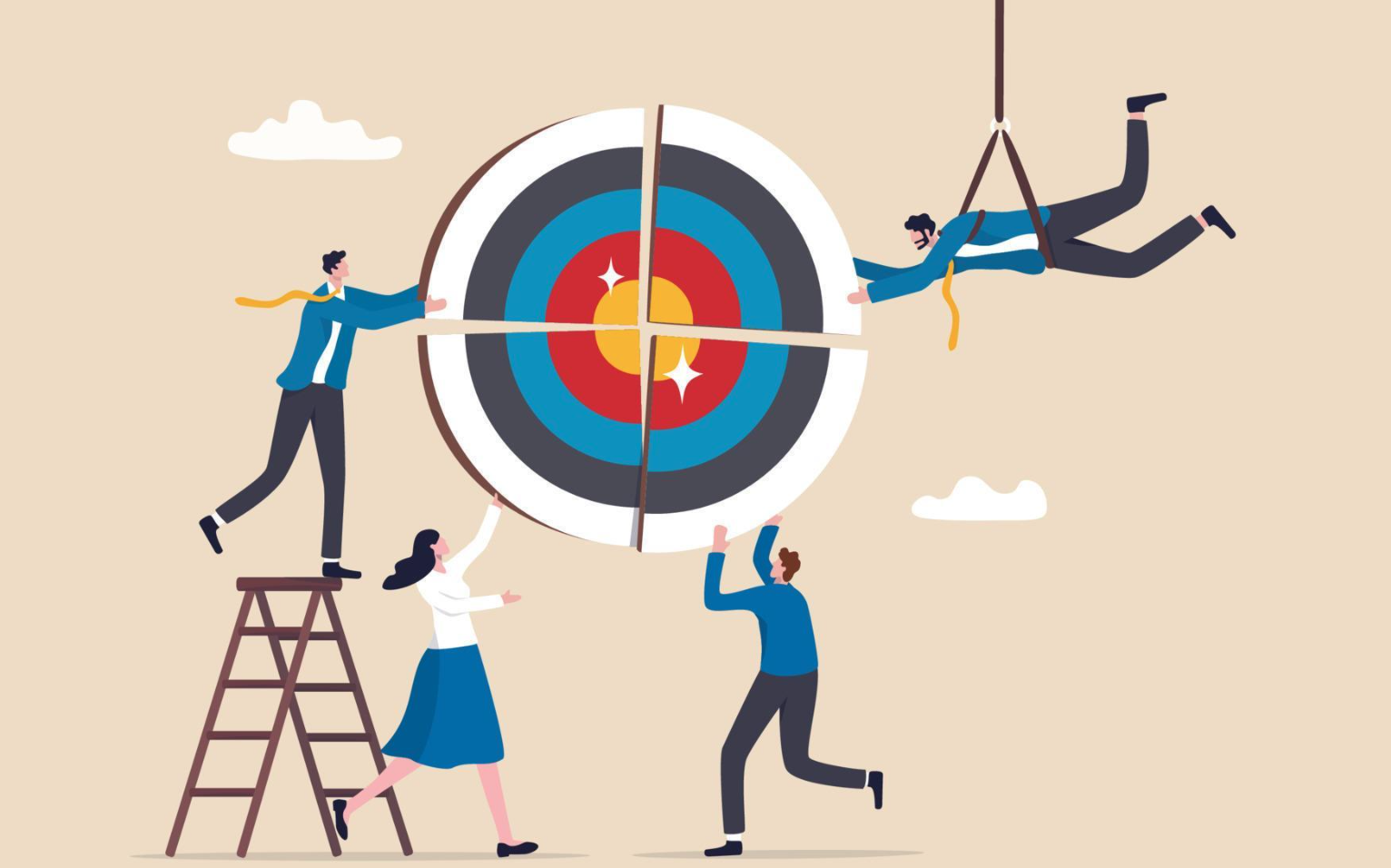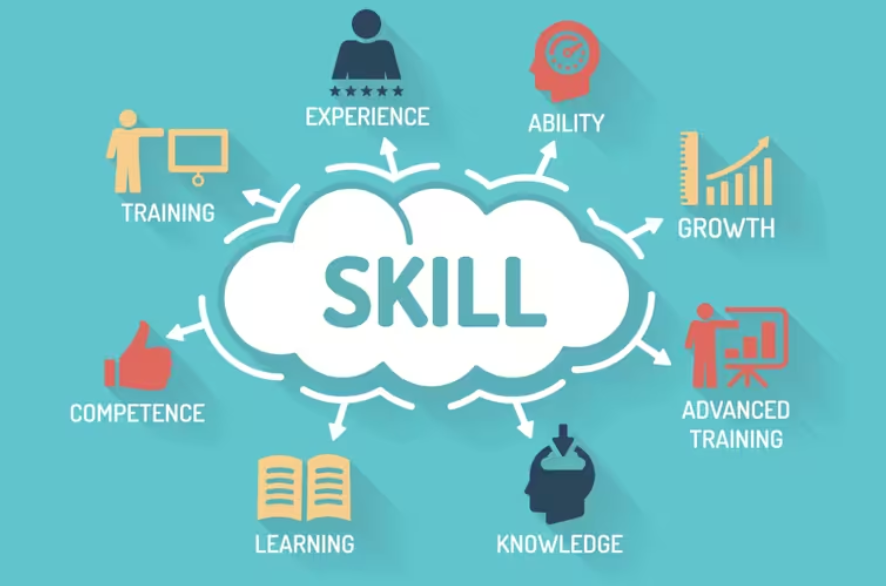The Power of Collaboration: Enhancing Team Performance Tactics

As organisations navigate complex challenges and strive for excellence, collaborating with your team has become more important than ever. Harnessing the collective intelligence, skills, and experiences of team members can lead to increased innovation, efficiency, and resilience.
So, if you are looking for creative ways to improve your team performance, stay tuned for great tips!
We'll dive into:
- Importance of team performance
-
11 creative ways to improve team performance
- Continuously upskill employees
- Initiate a goal tracker initiative
- Launch a performance rewards plan
- Promote effective internal communication
- Enhance meeting productivity
- Successful project management
- Cultivate a unified vision culture
- Recognise employees for their efforts
- Foster flexibility
- Continuous feedback
- Implement AI
- Conclusion
- FAQ
Importance of team performance
Teamwork in the workplace is an essential factor for achieving success.
From boosting efficiency to fostering innovation and everything in between, the power of teamwork can't be overstated.
So, why does it matter so much?
Let's dive deeper.
First off, teamwork isn't just about getting the job done; it's about getting it done better and faster.
When you divide tasks among team members and share the load, you're not only saving real time but also reducing the likelihood of errors.
But it's not just about efficiency; teamwork also leads to better team performance outcomes.
When you bring together a bunch of bright minds to tackle a problem, you're bound to come up with more creative solutions than if everyone worked in isolation.
Plus, you'll have a safety net of fresh perspectives to catch any potential pitfalls along the way.
And let's not forget about personal growth and job satisfaction.
Working in a supportive team environment can do wonders for morale.
It's not just about clocking in and out; it's about feeling valued, learning new skills, and having fun along the way.
After all, happy employees are loyal employees.
Speaking of loyalty, teamwork builds strong relationships.
And when you genuinely like and trust the people you work with, communication flows effortlessly – which is crucial for any business.
But perhaps the most significant benefit of teamwork is its ability to foster innovation.
When you combine different backgrounds, skills, and experiences, unique results are achieved.
Suddenly, you're not just thinking outside the box; you're blowing it wide open, uncovering fresh ideas and approaches that you never would have considered on your own.
And the best part?
Teamwork isn't just about achieving individual goals; it's about working towards a common purpose.
When everyone is aligned and pulling in the same direction, you create a synergy that's unstoppable.
So, when it comes down to it, teamwork isn't just important – it's essential.
In today's fast-paced world, the ability to collaborate effectively isn't just a nice-to-have; it's a must-have.
After all, no one ever achieved greatness alone.
(Image source: Team performance)
What makes a team effective and productive?
There are many ways to make a team effective and productive, but what are those?
And most importantly, how do they work?
It's essential to understand the fundamental elements that underpin positive team performance outcomes.
Take a moment to explore the following key components, each playing a pivotal role in shaping the success of a team:
Clear communication
Ever been in a group project where it feels like everyone's speaking a different language?
Yeah, chaos, right?
That's why having clear communication is so important for an effective team.
When everyone knows the plan, who's doing what, and how to reach out when they need to, as well as receiving constructive feedback, everything works out.
Then, conflicts might appear, but your team is prepared for that and won't let one little thing make your project fall apart.
So, clear communication isn't just about avoiding misunderstandings; it's about building a rock-solid foundation where everyone's on the same page and prepared for whatever comes their way.
(Image source: Clear communication)
Shared goals and roles
Shared roles and goals in a team are like having a roadmap for success.
Everyone knows their job and what we're aiming for.
No confusion, no guessing games.
It's all about clarity and unity towards a common goal.
When each team member understands their role and how it fits into the bigger picture, a well-coordinated team is ready to achieve its targets.
Whether it's hitting sales quotas or launching a project, shared roles and goals keep you on track and unstoppable.
So, having shared goals and roles is ideal for effective team performance.
(Image source: Shared goals and roles)
Effective collaboration
Effective collaboration is a key driver of a team's performance.
Why so?
Because it involves working together efficiently, sharing ideas, and leveraging each other's strengths to achieve our common goals.
When we collaborate effectively, we're able to accomplish tasks more smoothly and reach our objectives with greater ease.
It's all about clear communication, mutual respect, and a shared commitment to success.
Whether you are brainstorming solutions, dividing responsibilities, or providing support, effective collaboration ensures that you can tackle challenges effectively and have high-performance teams.
(Image source: Collaboration)
Continuous learning and adaptability
In today's fast-paced workplaces, change is inevitable.
But high-performing teams aren't intimidated by it; they thrive on it.
Instead of sticking to the same old routine, they actively seek out new ideas, embrace innovation, and adapt quickly to shifting circumstances.
By staying flexible and open to change, they remain agile, resilient, and ready to seize emerging opportunities.
To achieve this, high-performing teams need the support, resources, and technology to learn and evolve continuously.
That's why their value isn't just measured by random numbers, but by the tangible difference, they make for the company.
They understand the importance of experimentation and learning from mistakes to drive meaningful progress and innovation.
So, here's to the teams that welcome change, embrace learning, and continuously push boundaries to achieve greatness.
(Image source: Adaptability)
Here are 11 creative ways to improve team performance
We've arrived at the moment you've been waiting for – exploring numerous creative strategies to elevate your team's performance.
So, without any more delay, let's dive straight into these 11 tips:
1. Continuously upskill employees
Creating a Skills Boost Programme is like giving your team a boost of energy and confidence.
It's about showing them that you believe in their potential and want to help them grow.
By offering targeted training and development opportunities, you're giving each team member the chance to sharpen their skills and learn new ones.
It's not just about making them better at their jobs; it's about making them feel valued and invested.
And when your team feels supported and empowered, they're more motivated, more engaged, and more likely to go above and beyond to achieve success.
So, by investing in a Skills Boost Programme, you're not just improving team performance – you're investing in the people who make your team great.
(Image source: Skill)
2. Initiate a goal tracker initiative
We're all familiar with the motivating power of goals, driving us to push ourselves further and achieve greater heights.
Undoubtedly, setting goals is a fantastic method for enhancing team effectiveness.
However, despite this understanding, many individuals stumble when it comes to goal-setting.
What is the point of following the principles of SMART goals – specific, measurable, achievable, realistic, and time-bound, but setting goals that are outside of your control?
People can become fixated on the outcome rather than the actionable steps needed to attain it.
That's why, you should have accountable and controllable goals that you can track for better team effectiveness.
Then, individuals can assess what's working well and identify areas that may need adjustment or additional effort.
(Image source: Goal tracker)
3. Launch a performance rewards plan
Launching a performance rewards plan is a surefire way to turbocharge your team's performance.
Show some love for hard work by rewarding and appreciating your team.
Incentives and bonuses for exceeding targets can motivate them to go the extra mile.
After all, who doesn't like to be appreciated when doing the right thing?
This isn't just about the reward, it's about creating a culture of recognition and drive for improvement.
Get ready to watch your team reach new heights with this game-changing initiative!
(Image source: Incentives)
4. Promote effective internal communication
Not everyone is a great communicator, but that doesn't mean they can't become great ones.
Good communication between leaders and teams is essential for regular feedback, supportive team behaviour, and effective team meetings.
One method to achieve this is through regular one-to-one meetings, providing opportunities for open dialogue and addressing individual concerns or ideas.
Another idea is to run anonymous surveys.
This allows team members to express their opinions sincerely, encouraging honest feedback without fear of judgment.
By actively seeking input and suggestions from team members through these channels, organisations can identify areas for improvement and implement strategies to enhance communication and overall team effectiveness.
(Image source: Effective communication)
5. Enhance meeting productivity
Meetings are always related to good communication; there is much more in between.
Sometimes meetings take so long and so much time is wasted, but why so?
That could be due to a lack of clear objectives or agenda, leading to disorganised discussions and tangents that stray from the main purpose.
Another problem can be poor time management, such as starting late or running over the allocated time, which can result in rushed discussions and incomplete outcomes.
To increase efficiency and productivity, it is essential to keep your goals in sight, plan meetings in advance, and use appropriate technology.
This could be virtual collaboration tools for remote teams and interactive whiteboards for in-person meetings.
By enhancing meeting productivity, teams can streamline communication, foster collaboration, and drive better decision-making – all of which contribute to improved team performance.
(Image source: Meetings)
6. Successful project management
Effective project management is key to boosting team performance.
When projects are managed efficiently, it means everyone knows their role, deadlines are met, and goals are achieved.
With proper project management, tasks are assigned clearly, timelines are established, and progress is tracked regularly.
This ensures that the team stays focused, avoids unnecessary delays, and delivers quality results.
Overall, effective project management sets the stage for a productive and successful team.
7. Cultivate a unified vision culture
When managers and employees are aligned and connected, it's like having the whole team rowing in the same direction.
One-on-one meetings play a crucial role in fostering this alignment and connection.
This alignment isn't just about having regular meetings or sharing updates; it's about creating a sense of unity and shared purpose.
For instance, when managers take the time to communicate openly with their team members, listen to their ideas, and provide support, it fosters trust and collaboration.
Similarly, when individual employees feel connected to the company's mission and values, they're more motivated to give their best.
This alignment and connection boosts an entire team's performance by ensuring everyone is working towards a common goal with passion and purpose.
(Image source: Managers and employees)
8. Recognise employees for their efforts
Celebrating success together and recognising individual contributions significantly boosts team performance.
When achievements are celebrated collectively, it strengthens team morale and fosters a sense of unity.
Recognising each team member's efforts shows appreciation for their hard work and dedication, motivating them to continue performing at their best.
For example, a simple shout-out during a team meeting or a personalised thank-you note can go a long way in making individuals feel valued and respected.
This positive reinforcement creates a supportive work environment where team members feel empowered to excel.
(Image source: Recognition)
9. Foster flexibility
Fostering flexibility within a team is a key factor in enhancing performance.
When team members are adaptable and open to change, they can quickly respond to new challenges and opportunities.
This agility allows the team to navigate uncertain situations more effectively, adjusting strategies and priorities as needed.
For example, if a project deadline is suddenly brought forward, a flexible team can reallocate resources and adjust schedules to meet the new timeline without sacrificing quality.
So, fostering flexibility encourages innovation and creativity, as team members feel empowered to explore new ideas and approaches.
By embracing flexibility, teams can stay resilient in the face of change and maintain high levels of productivity and performance.
 (Image source: Flexibility)
(Image source: Flexibility)
10. Continuous feedback
Implementing a feedback loop system can greatly improve team performance.
This system creates a continuous cycle of communication and improvement, where feedback to team members is collected, analysed, and acted upon.
By actively seeking input from team members, leaders can gain valuable insights into what's working well and where there's room for improvement.
Regular evaluation in surveys or feedback sessions can uncover issues that may be hindering productivity or collaboration within the team.
By acting on this feedback, leaders demonstrate their commitment to addressing concerns, positive and negative feedback, and driving positive change.
This not only boosts morale but also fosters a culture of transparency and accountability within the team.
Ultimately, implementing a feedback loop system empowers teams to continuously learn and grow, leading to higher levels of performance and success.

11. Implement AI
AI couldn't be out of these tips, right?
By leveraging AI-powered tools and technologies, teams can automate repetitive tasks, analyse vast amounts of data, and uncover valuable insights to drive decision-making.
AI chatbots can streamline customer support processes, while predictive analytics can forecast market trends, enabling teams to make data-driven decisions.
AI can enhance collaboration by facilitating real-time communication and project management, even in virtual team meetings, which are less time-consuming.
By harnessing the power of AI, teams can optimise workflows, reduce errors, and focus their efforts on high-value tasks, eventually leading to improved collective performance and competitive advantage in today's digital landscape.
Conclusion
The importance of team performance cannot be overstated in today's competitive business landscape.
Understanding what makes a team effective and productive is essential for achieving organisational success.
By implementing creative strategies and fostering a culture of collaboration, communication, and continuous improvement, teams can reach their full potential and achieve remarkable results.
Whether it's through effective project management, fostering flexibility, executing feedback loops, or harnessing the power of AI, there are numerous avenues for enhancing team performance.
By prioritising the development and empowerment of teams, organisations can cultivate a dynamic and high-performing workforce balanced for success.
FAQ
1. Why is team performance important in the workplace?
Team performance is crucial for achieving organisational goals efficiently and effectively. When teams perform well, they increase productivity, innovate, and adapt to changes, ultimately contributing to the overall success of the company and employee satisfaction.
2. How can clear communication enhance team performance?
Clear communication ensures that everyone understands their roles, goals, and expectations. It has plenty of positive effects, as it minimises misunderstandings, fosters collaboration, and facilitates problem-solving, leading to improved team cohesion and performance.
3. What role does collaboration play in enhancing team performance?
Collaboration encourages the sharing of ideas, expertise, and resources among team members and a team leader. It promotes innovation, creativity, and collective problem-solving, resulting in higher-quality outcomes, increased productivity, and effective communication.
4. How can goal setting contribute to improved team performance?
Setting clear, achievable goals provides teams with direction and motivation. It helps align individual efforts with organisational objectives, fosters accountability and enables teams to track their progress and celebrate achievements.
5. How can organisations measure and track team performance effectively?
Organisations can measure team performance through various metrics, such as key performance indicators (KPIs), project milestones, customer satisfaction scores, and employee feedback. By regularly monitoring and evaluating performance indicators and having transparent communication, organisations can identify areas for improvement and make data-driven decisions to support their teams' success.
Categories
- Business & Innovation (72)
- Growth & Marketing (58)
- Data & Analytics (27)
- UX Design (13)
- Alumni Stories (11)
Related articles
Latest articles
Boost your Revenue Growth using LinkedIn Social Selling
In a digital age where connections mean everything, leveraging...
The Power of Collaboration: Enhancing Team Performance Tactics
As organisations navigate complex challenges and strive for...
The Ultimate guide to boost organic growth in 2024
Imagine organic growth as the business equivalent of sculpting...
The best 2024 Business Development Guide
What exactly is business development, and how does it differ from...






















